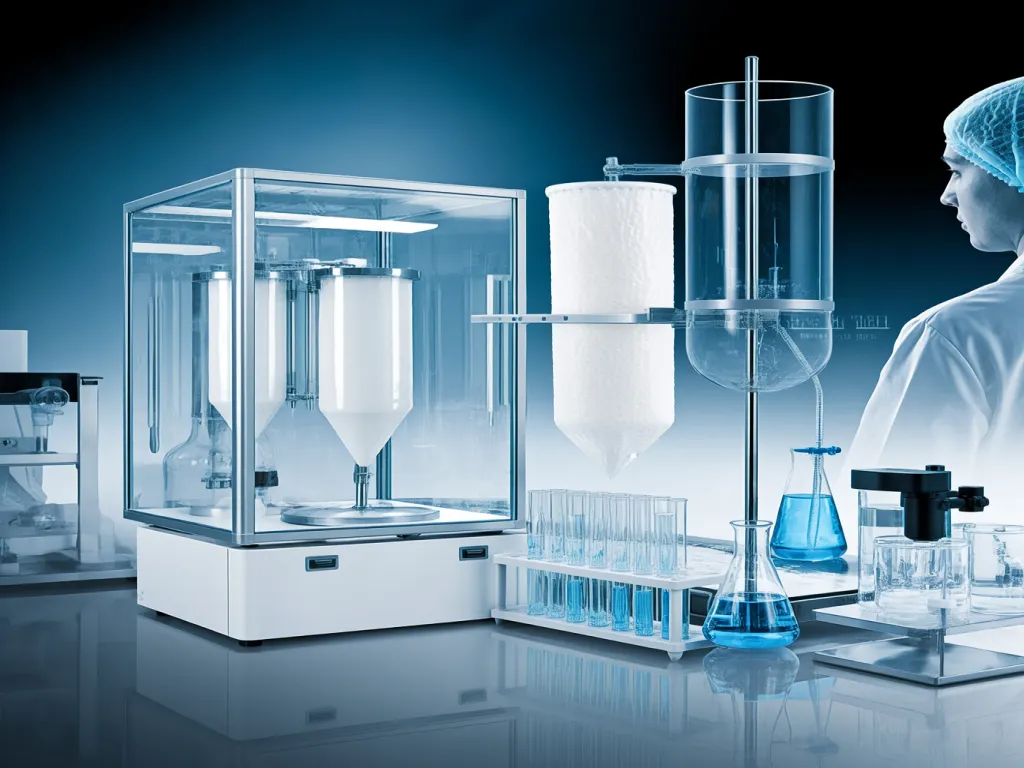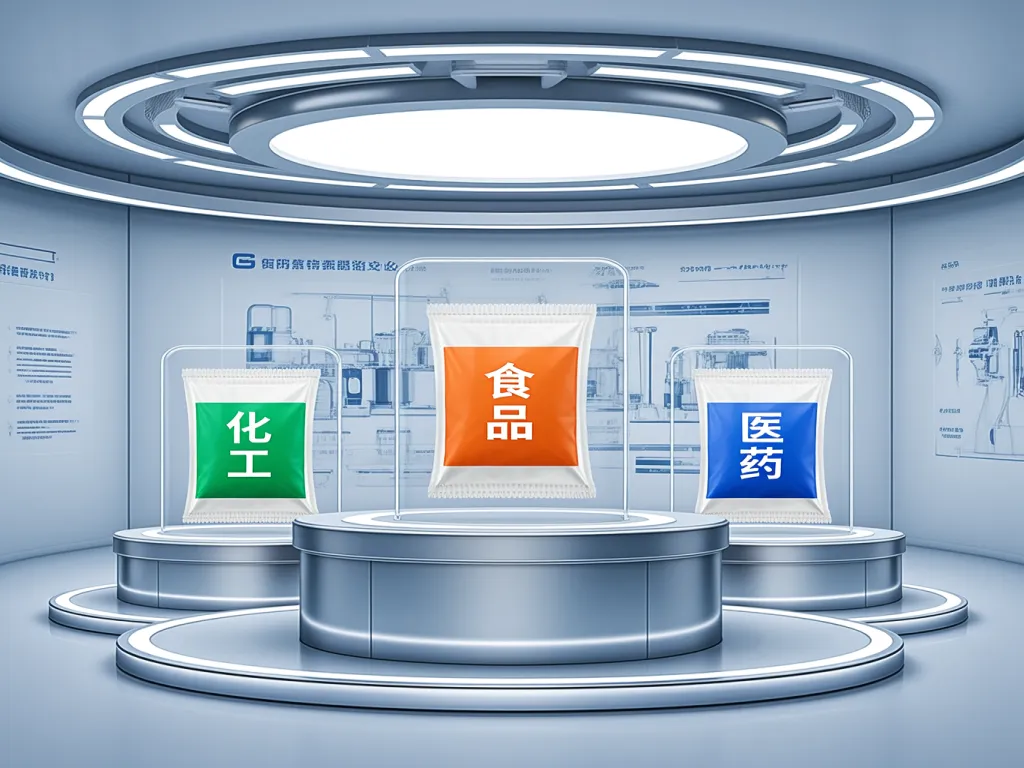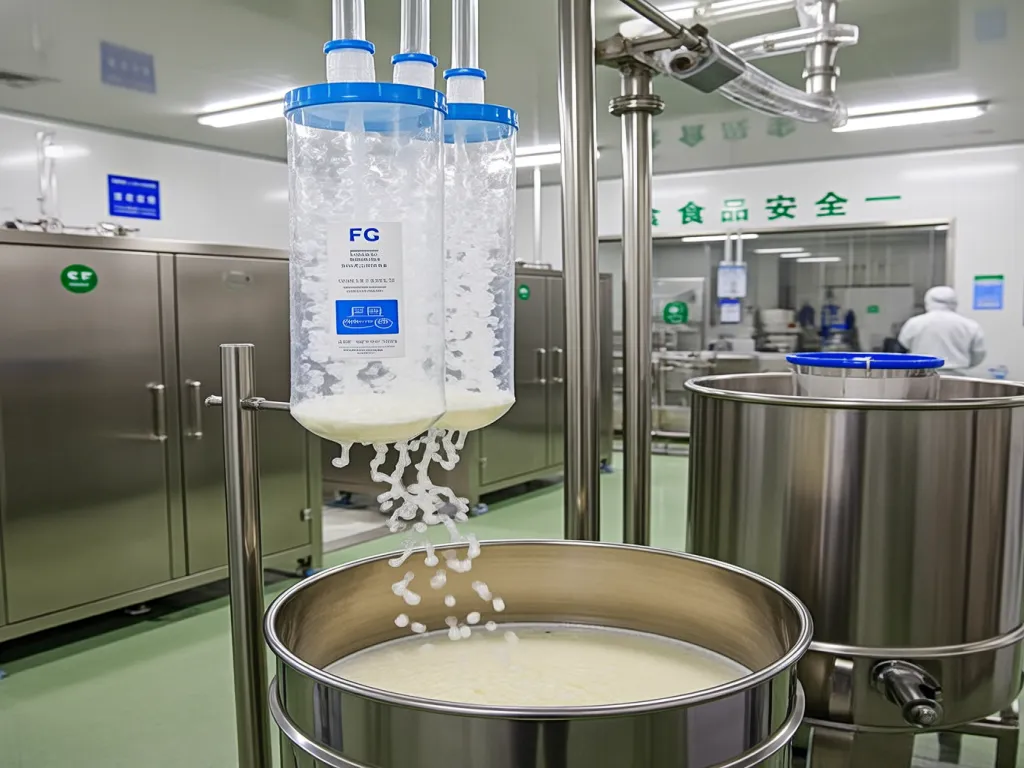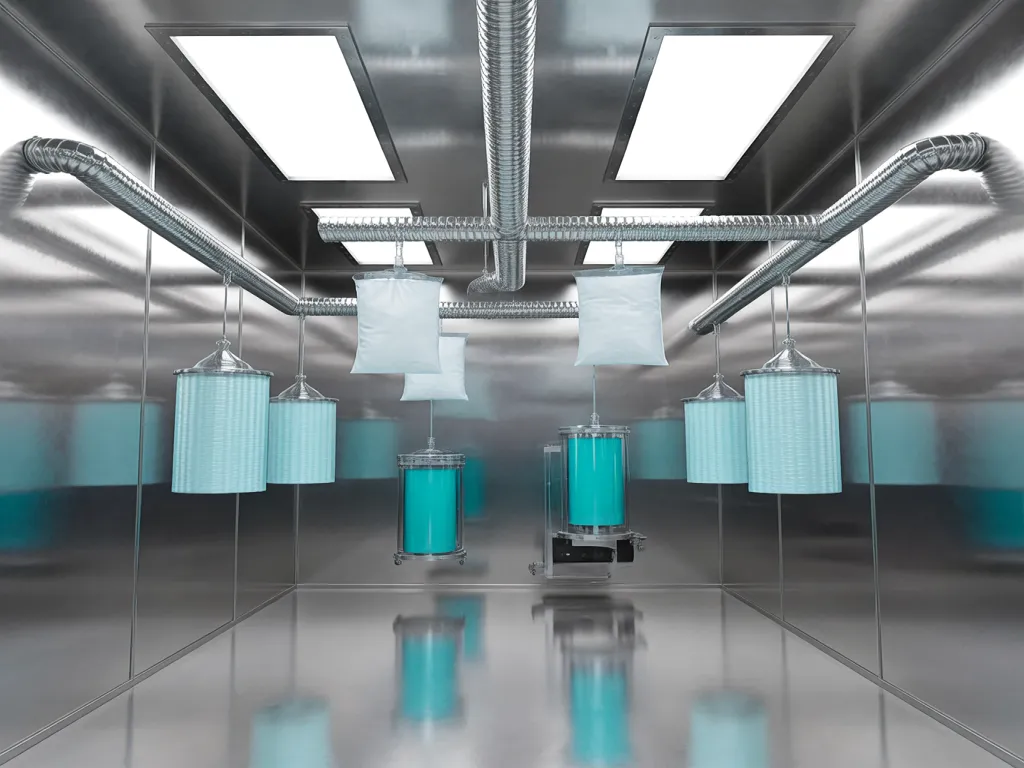Custom Guide: Pick Right Industrial Filter Bags
In the dynamic world of industrial filtration, one size certainly doesn’t fit all. Whether you’re dealing with corrosive chemicals, stringent food safety standards, or the need for sterile environments in pharmaceuticals, selecting the right industrial filter bags is crucial. But how do you navigate the myriad of options to find the perfect match for your industry? This guide dives deep into the specifics, helping you make informed decisions that enhance safety, efficiency, and product quality.

Chemical Industry: Emphasizing Chemical Resistance and High-Temperature Stability in Industrial Filter Bags
When it comes to the chemical industry, the stakes are high—literally and figuratively. The materials used in industrial filter bags must withstand not only extreme temperatures but also a barrage of chemical attacks that could degrade lesser materials over time. If you’ve ever wondered why certain filter bags seem to last longer than others in harsh chemical environments, the answer often lies in their chemical resistance and high-temperature stability. Let’s dive into the nitty-gritty of how different chemical raw materials can erode filter bag materials and why choosing the right one, like polytetrafluoroethylene (PTFE) filter bags, can make all the difference.
First off, it’s crucial to understand that not all chemicals are created equal. Some, like acids and bases, can be particularly aggressive towards certain materials. For instance, sulfuric acid, a common industrial chemical, can eat through many conventional filter bag materials, leading to premature failure and costly downtime. Similarly, strong bases like sodium hydroxide can cause saponification in some polymers, weakening the structure of the filter bag.
But here’s where things get interesting: certain materials, like PTFE, have an almost magical resistance to a wide range of chemicals. PTFE, often referred to by its brand name Teflon, is renowned for its non-reactive nature. This means it doesn’t easily react with most chemicals, making it an ideal choice for environments where chemical exposure is a constant concern. Whether you’re dealing with corrosive acids, harsh bases, or even organic solvents, PTFE filter bags stand up to the challenge, maintaining their integrity and performance over time.
Now, you might be thinking, ‘But what about high temperatures? Don’t some chemicals become even more aggressive at elevated temperatures?’ Absolutely! And that’s precisely why high-temperature stability is another critical factor to consider. Many industrial processes involve heating chemicals to facilitate reactions or improve flowability. If your filter bag can’t handle the heat, it’s only a matter of time before it fails.

PTFE, again, shines in this regard. It has a melting point of around 327°C (620°F), which means it can withstand temperatures that would melt or degrade many other materials. This high-temperature stability ensures that your filter bags remain effective even in the hottest parts of your chemical processing plant.
So, how do you choose the right industrial filter bags for your chemical industry needs? Start by assessing the specific chemicals you’ll be handling and the temperatures they’ll be exposed to. Look for materials that have proven resistance to those chemicals and can handle the expected temperature range. PTFE is a fantastic all-around choice, but there may be other materials that offer better performance or cost-effectiveness for your specific application. For a deeper dive into the properties of PTFE and its suitability for industrial applications, consider exploring resources like PTFE properties on ScienceDirect.
Don’t forget to consider the construction of the filter bag as well. Seams, welds, and other joining methods can be weak points if not done correctly. Look for filter bags that are constructed with chemical-resistant threads and welds to ensure the entire bag can withstand the rigors of your chemical environment.
In conclusion, choosing the right industrial filter bags for the chemical industry is all about understanding the specific challenges you face. By prioritizing chemical resistance and high-temperature stability, you can ensure that your filter bags will perform reliably, even in the most demanding conditions. And when in doubt, PTFE filter bags are a safe bet that won’t let you down.
Understanding Chemical Erosion in Filter Bags
Chemical erosion is a silent but deadly enemy of filter bags in the chemical industry. It occurs when chemicals react with the filter bag material, causing it to weaken, degrade, or even disintegrate over time. This process can be accelerated by factors like temperature, concentration, and exposure time. Understanding the specific chemicals you’ll be handling and their potential for erosion is the first step in choosing the right filter bag material.
The Role of Temperature in Filter Bag Performance
Temperature plays a crucial role in the performance of industrial filter bags. High temperatures can cause materials to expand, soften, or even melt, compromising the structural integrity of the filter bag. Conversely, low temperatures can make materials brittle and prone to cracking. Choosing a filter bag material that can withstand the expected temperature range is essential for ensuring reliable performance.
PTFE: The Gold Standard for Chemical Resistance
When it comes to chemical resistance, PTFE stands out as the gold standard. Its non-reactive nature means it doesn’t easily react with most chemicals, making it an ideal choice for harsh chemical environments. Additionally, its high melting point ensures that it can withstand elevated temperatures without degrading. If you’re looking for a filter bag material that can handle just about anything the chemical industry throws at it, PTFE is hard to beat.

Food Industry: Prioritizing Hygiene Standards and Non-Toxicity in Industrial Filter Bags
When it comes to the food industry, hygiene and safety are non-negotiable. The production process demands stringent control over every component, including industrial filter bags. These bags play a crucial role in ensuring the purity and quality of food products by filtering out contaminants, impurities, and even microorganisms. But what exactly makes an industrial filter bag suitable for the food industry? Let’s dive deeper.
First and foremost, food-grade industrial filter bags must adhere to rigorous hygiene standards. This means they should be constructed from materials that are not only durable but also safe for contact with food. The presence of toxic substances or chemicals in the filter bag material can lead to contamination, posing serious health risks to consumers. Therefore, selecting filter bags that are non-toxic and free from harmful additives is paramount.
One of the most widely recognized standards for food safety is the FDA (Food and Drug Administration) approval. Filter bags that meet FDA standards are deemed safe for use in food processing environments. Among the materials that commonly receive FDA approval are polyester (PET) and nylon (NYLON). These synthetic fibers are known for their excellent chemical resistance, mechanical strength, and temperature stability, making them ideal candidates for food industry applications.
Polyester (PET) filter bags, for instance, are celebrated for their resistance to most acids, alkalis, and solvents. This property ensures that the filter bag remains intact and effective even when exposed to harsh cleaning agents or food ingredients. Moreover, PET’s low moisture absorption rate prevents the growth of bacteria and mold, further enhancing its suitability for food applications. For food manufacturers seeking reliable filtration solutions, exploring options like polyester dust collector filter bags can be a great start.
Nylon (NYLON) filter bags, on the other hand, offer exceptional durability and abrasion resistance. They can withstand repeated use and cleaning without compromising their structural integrity. This makes nylon filter bags a cost-effective choice for food manufacturers who require long-lasting, reliable filtration solutions. Additionally, nylon’s smooth surface facilitates easy cleaning, reducing the risk of cross-contamination between batches.
But why stop at just meeting hygiene standards? The food industry also values efficiency and sustainability. That’s where the easy-to-clean and reusable nature of PET and NYLON filter bags shines. Unlike disposable filters, which generate waste and increase operational costs, reusable filter bags can be cleaned and sanitized multiple times, extending their lifespan and reducing environmental impact.
Imagine the convenience of having a filter bag that can be quickly rinsed, sterilized, and put back into service. This not only saves time but also minimizes downtime during production. Plus, the ability to reuse filter bags aligns with the growing trend of sustainable manufacturing practices, appealing to eco-conscious consumers and businesses alike.
Now, you might be wondering, ‘How do I ensure that the industrial filter bags I choose are truly food-grade?’ The answer lies in verifying their FDA compliance and checking for certifications from reputable third-party organizations. These certifications serve as a testament to the filter bag’s quality and safety, giving you peace of mind when integrating them into your food production process.
In conclusion, the food industry demands industrial filter bags that prioritize hygiene, non-toxicity, and reusability. By opting for FDA-approved materials like polyester (PET) and nylon (NYLON), you can ensure that your filtration system meets the highest standards of food safety. So, the next time you’re in the market for industrial filter bags, remember to prioritize these key factors. Your customers’ health and your brand’s reputation depend on it!
The Importance of FDA Approval in Food Industry Filter Bags
FDA approval is a critical benchmark for filter bags used in the food industry. It signifies that the material has undergone rigorous testing and meets the stringent safety standards set by the Food and Drug Administration. Choosing FDA-approved filter bags ensures that your food products remain free from harmful contaminants, safeguarding consumer health and maintaining your brand’s integrity.
Advantages of Polyester (PET) Filter Bags in Food Processing
Polyester (PET) filter bags offer several advantages in food processing applications. Their resistance to acids, alkalis, and solvents makes them highly durable and effective in various food production environments. Additionally, PET’s low moisture absorption rate inhibits bacterial growth, ensuring a hygienic filtration process. For those seeking specific polyester options, polyester pocket filter bags provide a tailored solution. These properties make PET filter bags a reliable choice for food manufacturers seeking long-lasting, safe filtration solutions.
Nylon (NYLON) Filter Bags: Durability and Reusability
Nylon (NYLON) filter bags are renowned for their exceptional durability and abrasion resistance. They can withstand repeated use and cleaning without losing their structural integrity, making them a cost-effective option for food manufacturers. The smooth surface of nylon facilitates easy cleaning, reducing the risk of cross-contamination. Moreover, their reusability aligns with sustainable manufacturing practices, appealing to environmentally conscious businesses.

Pharmaceutical Industry: Pursuing High-Precision Filtration and Sterile Environments
In the pharmaceutical industry, the stakes are high when it comes to maintaining high-precision filtration and sterile environments. The production processes involve handling sensitive substances where even the tiniest particles or microorganisms can compromise product quality and safety. This stringent requirement makes selecting the right industrial filter bags absolutely crucial. So, how do you navigate through the myriad of options to find industrial filter bags that meet these exacting standards? Let’s dive in.
First and foremost, understanding the nature of pharmaceutical processes is key. Pharmaceutical manufacturing often deals with APIs (Active Pharmaceutical Ingredients) and excipients that require protection from contamination. Any foreign particle, be it dust, fibers, or bacteria, can lead to severe consequences, including product recalls or, worse, health risks to end-users. Therefore, the filtration system must be impeccable.
When it comes to choosing industrial filter bags for pharmaceutical applications, efficiency in capturing micro-particles and microorganisms is paramount. This is where materials like glass fiber and ultra-fine fiber filter bags come into play. Glass fiber filter bags are renowned for their high filtration efficiency, especially in capturing fine particulates. Their intricate fiber structure creates numerous pathways for air or liquid to pass through while trapping unwanted particles. This makes them ideal for applications where maintaining air or liquid purity is non-negotiable, such as in sterile drug manufacturing environments.
On the other hand, ultra-fine fiber filter bags offer an even higher level of precision. These bags are constructed with fibers that are significantly thinner than traditional filter media, allowing them to capture even smaller particles. The result? A filtration system that leaves virtually no room for contaminants to slip through. But efficiency isn’t the only factor to consider. Sterility is equally, if not more, important in the pharmaceutical industry. Filter bags used in these settings must undergo rigorous sterilization processes to ensure they are free from any viable microorganisms. This often involves treatments like gamma irradiation or autoclaving, which are designed to eliminate all forms of microbial life without compromising the filter bag’s structural integrity.
So, how do you decide between glass fiber and ultra-fine fiber filter bags? It boils down to your specific needs. If your process involves handling substances that are highly susceptible to contamination by even the smallest particles, ultra-fine fiber filter bags might be the way to go. Their superior filtration capabilities can provide that extra layer of protection. However, if you’re looking for a balance between cost and performance, glass fiber filter bags offer an excellent compromise. They provide high filtration efficiency at a relatively lower cost compared to ultra-fine fiber alternatives, making them a popular choice in many pharmaceutical applications.
Moreover, it’s essential to consider the compatibility of the filter bag material with the substances being filtered. Some chemicals or solvents used in pharmaceutical processes might react with certain filter media, leading to degradation or contamination. Therefore, consulting with filter bag manufacturers or suppliers who have expertise in the pharmaceutical industry can be invaluable. For instance, you can refer to resources like industrial filter bag selection guides provided by reputable manufacturers to gain deeper insights. They can provide insights into which materials are best suited for your specific applications and help you avoid potential pitfalls.
In conclusion, selecting industrial filter bags for the pharmaceutical industry is a task that requires careful consideration of filtration efficiency, sterility, and material compatibility. By understanding the unique demands of pharmaceutical processes and the capabilities of different filter bag materials, you can make an informed decision that safeguards product quality and ensures compliance with regulatory standards. So, are you ready to take your pharmaceutical filtration to the next level?
Selecting the ideal industrial filter bags is more than just a purchase; it’s an investment in your industrial process’s safety, efficiency, and output quality. By understanding the unique demands of your industry—whether it’s the chemical resilience required in chemical processes, the food-grade safety in the culinary sector, or the sterile precision of pharmaceuticals—you can tailor your filtration solutions to perfection. Ready to transform your industrial filtration game? Dive into our comprehensive guide and start customizing your filtration strategy today. What challenges are you facing in your current filtration setup?
